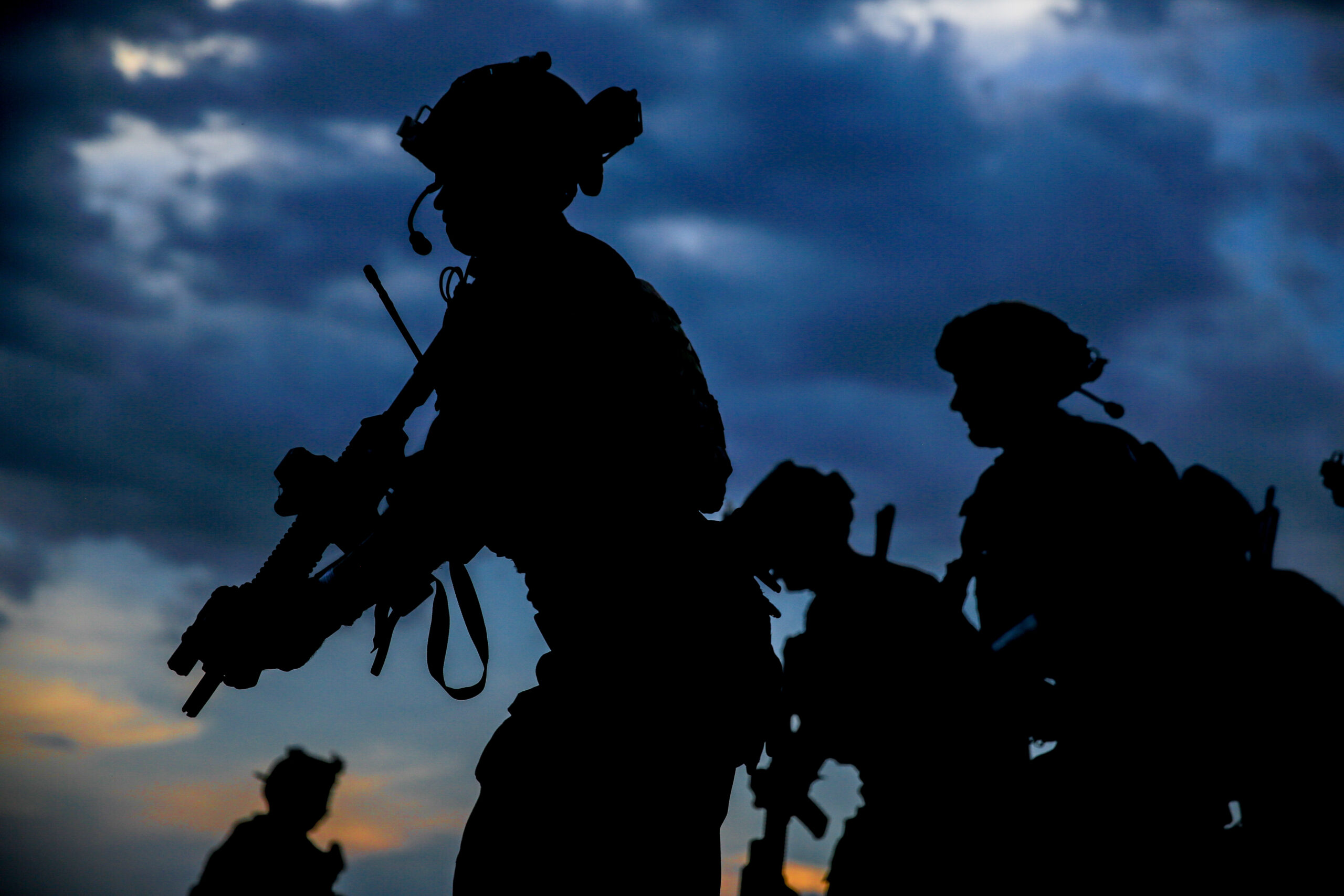


For the first time in its history, U.S. Special Operations Command is an equal among the military services, Acting Defense Secretary Chris Miller announced on Wednesday.
“I am here today to announce that I have directed the special operations civilian leadership to report directly to me instead of through the current bureaucratic channels,” Miller said during an unannounced visit to Fort Bragg, North Carolina. “This historic step finalizes what Congress has authorized and directed and will put Special Operations Command on par with the military services for the first time.”
The top Pentagon civilian official who oversees special operations had previously reported to the undersecretary of defense for policy, said Pentagon spokeswoman Navy Cmdr. Candice Tresch.
Now, the assistant secretary of defense for special operations and low-intensity conflict will report directly to Miller and he will also be in the administrative chain of command for U.S. Special Operations Command, Tresch said.
Miller’s announcement means that the Defense Department has expanded the responsibilities of the assistant secretary of defense for special operations and low intensity conflict, which Congress mandated in December 2016.
Now that these reforms have been implemented, they will streamline the flow of information and allow defense officials to better support service members, Miller said on Wednesday.
These particular changes have been analyzed and debated since the creation of U.S. Special Operations Command three decades ago, he said.
“I have closely studied and been intimately involved in these efforts,” said Miller, a retired Green Beret. “I personally believe that SOLIC [special operations low-intensity conflict] deserves to be an undersecretary of defense, but unfortunately that’s beyond my authority and purview at this time.”
Efforts over the past four years to expand civilian oversight of special operations forces have been stymied in part by rapid turnover in the Pentagon since Owen West resigned as assistant secretary of defense for special operations and low-intensity conflict in June 2019.
Since then, the job has been held by four other officials on a temporary basis, including Miller, who served as the Pentagon’s top civilian leader for special operations for just under two months this year.
Ezra Cohen-Watnick, who is currently filling the position, has also been dual-hatted as the acting undersecretary of defense for intelligence and security following a slew of high level Pentagon resignations on Nov. 10.
“Today, the Department of Defense has started the process of formalizing what we have long known the fundamental role of U.S. special operations in defense and foreign policy by elevating special operations forces to a level on par with military departments, as authorized and directed by Congress,” Cohen-Watnick said at Fort Bragg on Wednesday.
“As we enact these reforms, we follow the vision of President John F. Kennedy, who predicted the rise of special operations nearly 60 years ago,” he said.
Related:‘Harley riding, tequila-drinking Navy SEAL’ nominated to oversee special operations at the Pentagon